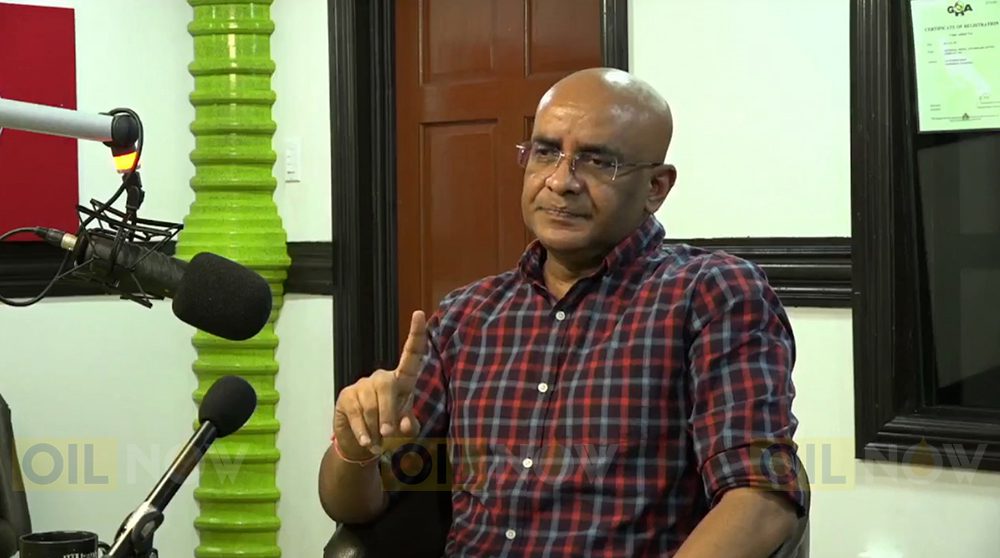Guyana’s Vice President Dr Bharrat Jagdeo believes that a better understanding of the arrangement between the government and ExxonMobil local affiliate Esso Exploration and Production Guyana Limited (EEPGL) will help the public to have more realistic expectations about the company’s operations in the country.
Appearing on a local radio show on Tuesday, Dr. Jagdeo said the misunderstanding of co-ownership is what is causing many to believe that Guyana has a right to participate in EEPGL’s day-to-day operations and decision-making.
The show’s host, Glenn Lall, stated that Guyana is losing “billions” due to EEPGL’s leasing and rental of Floating Production Storage and Offloading units (FPSO), helicopters etc. Lall is of the belief that the government has a right to sanction EEPGL’s choice of rental to keep costs down. To support this point, he claimed Guyana is a 50% partner, and it should have such and other rights.
“The government doesn’t run the company, the company raises money, it had to raise US$20 billion to invest in the four FPSOs. They’re investing this money in their FPSOs, they’re making expenditures, paying back what they borrowed and then they’re paying a share in royalty and profit oil to the government,” the Vice President explained.
Exxon’s costs subject to scrutiny by partners, Guyana government and third parties | OilNOW
Dr. Jagdeo posited that Guyana does not have the right to tell EEPGL how to carry out its day-to-day operations. He also stated that Guyana does not have a single share in the company. “We do not own 50% of the company. That is a mistake many people make.”
The Vice President stressed that EEPGL is a limited liability company with its own management team and staff, and that it had to raise money to finance four projects.
“We do not go out to tender for them. We have directed, through local content law, how the tender must be done. We do not approve these expenses, it is done at the company level,” said Dr. Jagdeo.
He explained that Guyana gets the opportunity to examine expenditure incurred by EEPGL via audits. “We get two audits, one by contract and one by GRA (Guyana Revenue Authority).”
Local consortium, foreign auditors team up to audit Exxon’s 2018-2020 costs | OilNOW
Dr. Jagdeo further noted that when examining costs, Guyana has to measure what has been incurred by EEPGL against industry standards and only if spending seems exorbitant will it be flagged. This means expenditure will only be considered excessive if it is out of the ordinary.
Dr. Jagdeo said that Guyana’s only business in determining whether costs are excessive is with the aim of knowing if the 50% profit oil, to which government is entitled, is understated on the basis of cost oil being inflated.
The Vice President explained that the 50% entitlement is of profit oil as per terms stated in the Production Sharing Agreement. This is not to be confused with a 50% share for Guyana in EEPGL, which does not exist.



